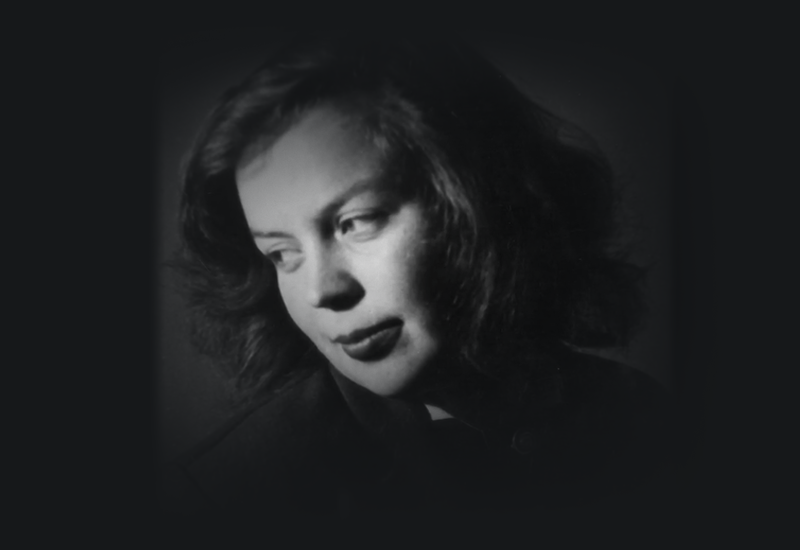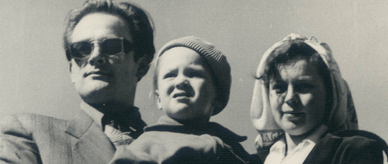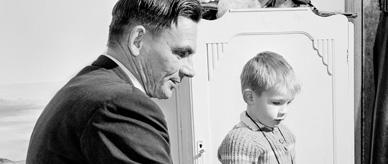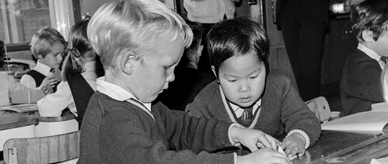Vera Marek and her husband Voitre fled Communist Czechoslovakia in 1948, undertaking a covert and dangerous journey to Australia via a displaced persons camp in Germany.
The Mareks settled in Adelaide, where Voitre worked as an artist and Vera taught in a primary school. Although her children were raised speaking Czech at home, Vera valued the opportunity to have adopted the English language as her own.




